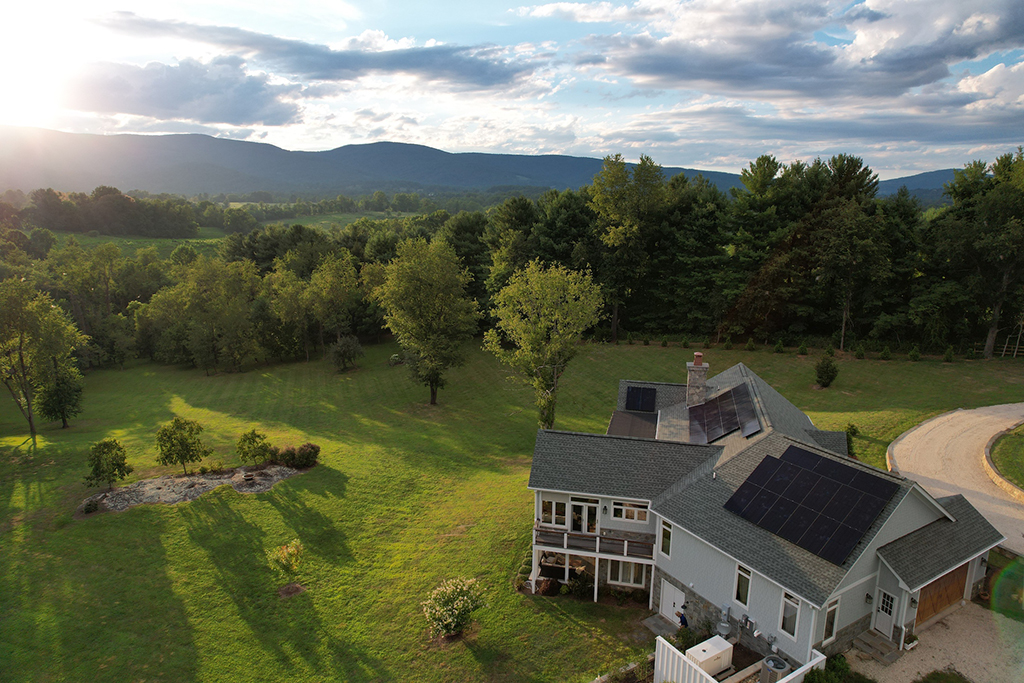
Solar Panel Installation
The adoption of solar energy is becoming more popular as homeowners and businesses seek sustainable, cost-effective ways to power their properties. Installing solar panels can seem overwhelming due to technical details, costs, and installation logistics. To address common concerns, here’s an FAQ guide that covers the essential aspects of solar panel installation.
- What Are Solar Panels and How Do They Work?
Solar Panel Installation Loudoun County is devices that convert sunlight into electricity using photovoltaic (PV) cells. When sunlight hits these cells, it creates an electric field, generating electricity. This electricity can either be used immediately to power your home or business or stored in batteries for later use. Solar panels can reduce or even eliminate your reliance on the traditional grid, leading to lower energy bills.
- How Much Do Solar Panels Cost?
The cost of solar panels varies depending on several factors, including the size of your system, your location, and the installer you choose. On average, the cost of a solar panel system can range between $10,000 to $30,000 for a typical home installation before incentives and tax credits.
Key factors influencing cost include:
- System Size: The larger the system, the more panels you need.
- Panel Type: There are different types of solar panels, such as monocrystalline and polycrystalline, which vary in efficiency and price.
- Installation Costs: Labor, permits, and design fees can add to the overall price.
- What Financial Incentives Are Available for Solar Panel Installation?
Governments and utilities offer various financial incentives to reduce the upfront cost of installing solar panels. Some of the most common programs include:
- Federal Investment Tax Credit (ITC): In the U.S., this allows homeowners to deduct a percentage of the installation cost from their federal taxes. The percentage varies year by year.
- State Tax Credits: Many states offer additional tax credits for solar installation.
- Local Rebates: Some utility companies offer rebates or credits for producing renewable energy.
- Net Metering: This allows you to sell excess energy back to the grid, providing financial credits on your electricity bill.
- How Long Does It Take to Install Solar Panels?
The process of installing solar panels typically takes one to three days for residential projects. However, the overall process from initial consultation to system activation can take longer due to several steps:
- Consultation and Design: This involves a professional assessing your property and designing a suitable system, which can take 1-2 weeks.
- Permitting: Depending on local regulations, obtaining permits can take 2-6 weeks.
- Installation: The actual installation can be completed in a few days, depending on the complexity of the system.
- Inspection and Activation: After installation, the system must pass inspection and be connected to the grid, which may take 1-2 weeks.
- Will Solar Panels Work for My Property?
Several factors determine whether solar panels will work efficiently for your home or business:
- Roof Condition: Your roof should be in good condition and able to support the weight of solar panels. If your roof is old or damaged, repairs or replacements may be needed before installation.
- Roof Orientation: South-facing roofs receive the most sunlight in the Northern Hemisphere, making them ideal for solar panels. East- or west-facing roofs can also work, though they may produce less energy.
- Shading: Trees, buildings, or other structures casting shadows on your roof can reduce energy production. A professional assessment will help determine the impact of shading.
- What Maintenance Do Solar Panels Require?
Solar Panel Installation Fairfax require minimal maintenance due to their durable and weather-resistant design. However, some routine tasks can ensure optimal performance:
- Cleaning: Dirt, dust, bird droppings, and debris can accumulate on panels, reducing efficiency. Cleaning them with water and a soft cloth 1-2 times a year is generally enough.
- Monitoring Performance: Many solar systems come with monitoring software to track performance. This helps you identify potential issues like drop-offs in production.
- Inspections: Annual or bi-annual professional inspections can help catch any potential problems, such as loose wiring or damage from weather.
- How Long Do Solar Panels Last?
Solar panels typically have a lifespan of 25 to 30 years. During this period, their efficiency may gradually decrease, but most panels still operate at 80-90% efficiency after 25 years. Inverters and other system components may need replacing every 10-15 years, but the panels themselves are built to last.
- How Much Can I Save by Installing Solar Panels?
The amount of savings depends on your energy consumption, the size of the solar panel system, and local electricity rates. On average, solar panels can reduce monthly electricity bills by 50% to 100%. Homeowners who generate excess energy can also sell it back to the grid through net metering, leading to additional financial benefits.
- Short-term Savings: You can see reductions in your energy bills as soon as your system is activated.
- Long-term Savings: Over 25 years, solar panels can save homeowners tens of thousands of dollars in electricity costs.
- Are Solar Panels Environmentally Friendly?
Yes, solar panels are one of the most environmentally-friendly energy sources available. They produce clean, renewable energy without emitting harmful pollutants or greenhouse gases. Solar energy helps reduce reliance on fossil fuels, contributing to the fight against climate change.
- Renewable Energy Source: Solar power is abundant and renewable, unlike finite fossil fuels.
- Carbon Footprint: Solar panels produce significantly less carbon dioxide (CO2) over their lifetime compared to traditional energy sources.
10. Can I Install Solar Panels Myself?
Residential Solar Panels Fairfax are available, installing solar panels yourself is not recommended unless you have the necessary skills and knowledge. Improper installation can lead to safety hazards, system inefficiencies, or damage to your property. Professional installers ensure the system is safe, optimized for energy production, and meets local codes and regulations.
- What Is the Difference Between Grid-Tied and Off-Grid Solar Systems?
There are two main types of solar systems:
- Grid-Tied: This system is connected to the local utility grid. You can draw power from the grid when your solar panels are not producing enough electricity (such as during cloudy days or nighttime). Any excess energy your system generates can be sold back to the grid.
- Off-Grid: This system is not connected to the grid and requires batteries to store electricity. Off-grid systems are ideal for remote locations or individuals who want complete independence from utility companies, but they can be more expensive due to the need for storage.

